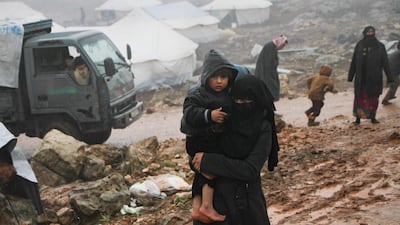On New Year’s Eve 1999, as most people were planning millennial festivities and protecting their data against Y2K, I was hunkered down with old-fashioned paper maps, planning how I could smuggle myself inside a closed, snow bound country.
The breakaway republic of Chechnya was fighting a war against powerful Russian forces, and independent journalists were banned from entering the country. Closed countries were a red flag. They meant something bad was happening and it always compelled me to reach there fast. I was planning to enter Chechnya by foot, either through the snowy Georgian mountains or with smugglers through neighbouring Ingushetia.
That is what the 1990s were: a series of brutal, backyard wars, commencing with Bosnia, a war that shaped my life as a journalist and a human rights activist, to Africa – the genocide in Rwanda, the horrible wars in Liberia, Sierra Leone, Burundi, and conflicts in Zimbabwe and the Congo. I ended that decade reporting the Nato wars in Kosovo and the violent turmoil in East Timor.
I did make it to Chechnya, in time to witness the fall of Grozny to Russian forces at the end of January 2000. My two colleagues and I were virtually the only foreigners and thus independent witnesses inside the country and our documentation of the terrors at that time is indelible.
On the day Grozny fell, holed up with Chechen soldiers in bloodied winter-white uniforms, driven nearly insane by the aerial bombing, I remember putting my satellite phone down as I filed the last word of my report. It was a graphic chronicle of the bombing, destruction, fear, starvation and misery.
Just as I dictated my last word out to a copy taker in London (this was long before modern technology) the battery died. I remember the tremendous sense of relief that, at the very least, the story had gotten out to the world. That was the power of the press.
This decade will close leaving bitter memories of the war in Syria. Even though I teach my students that no two conflicts are the same, there are always rudimentary templates. And the similarities I saw between Syria, Bosnia, and Chechnya were the relentless, cruel attacks on civilians. Syria, however, took on a dimension that was absent in the earlier wars – that of a proxy war which involved numerous countries, all unaffected by the plight of the Syrian people.
All wars are characterised by crimes of unimaginable horror. In Bosnia, there was ethnic cleansing, Muslim villages burnt to obliterate the gene pool. There were camps where women were raped dozens of times a day. There were 'concentration camps' in Omarksa and Sanski Most, and the desperate siege of Sarajevo.
In Syria, the cruelty of the war crimes was different. In the beginning of that war, when I was able to work in regime-controlled areas, I began documenting rape used as a tool of war to silence and create fear in communities.
But in a post-9/11 world, wars had changed. What a difference 20 years makes in not just combat techniques and brutality, but also in terms of technology. In Syria, I could report using WhatsApp and my cell phone.

In comparison to the proxy war of Syria, Bosnia seems simplistic, even though the political twists and turns at the time confounded those of us living there.
In Bosnia, there were no planes obliterating cities and civilian enclaves. Hospitals in Sarajevo were hit by mortars and often lacked medical supplies and electricity. But there were no cruel, deliberate attacks on healthcare facilities, which is one of the hallmarks of the Syrian regime’s war crimes. Doctors were not killed in Bosnia simply because they were doctors. But in Syria, this was a chosen tactic.
Three years ago on December 16, 2016, when Aleppo fell to Syrian regime forces, the UN secretary general Ban Ki-moon declared: “Aleppo is a synonym for hell.”
In Bosnia, my colleagues and I felt we had really made a difference. A group of us who felt committed to the plight of civilians in Sarajevo refused to abandon the city and continued to write about it for years.

But nothing, not even Bosnia could prepare me for the level of horror when the Syrian War started in 2011, not even, perhaps, my memories of the Rwandan genocide. And journalism did not have the same impact. Once ISIS entered the game in 2012, and began kidnapping and murdering my colleagues, journalists were not immune. Working in war zones was always about documentation: to prove that this happened and that those who did it would be held accountable. Access in Syria was so restricted that it made reporting much tougher and riskier for us, though not impossible.
As we move into another decade, it is too idealistic and perhaps silly to hope that wars will stop, that governments and regimes will grow to respect and honour international law and the Geneva Convention. Three decades of war reporting and conflict analysis have taught me – quoting the much disputed quote – that only the dead know the end of war.
Janine di Giovanni is a senior fellow at Yale University’s Jackson Institute for Global Affairs and the author of The Morning They Came for Us: Dispatches from Syria


